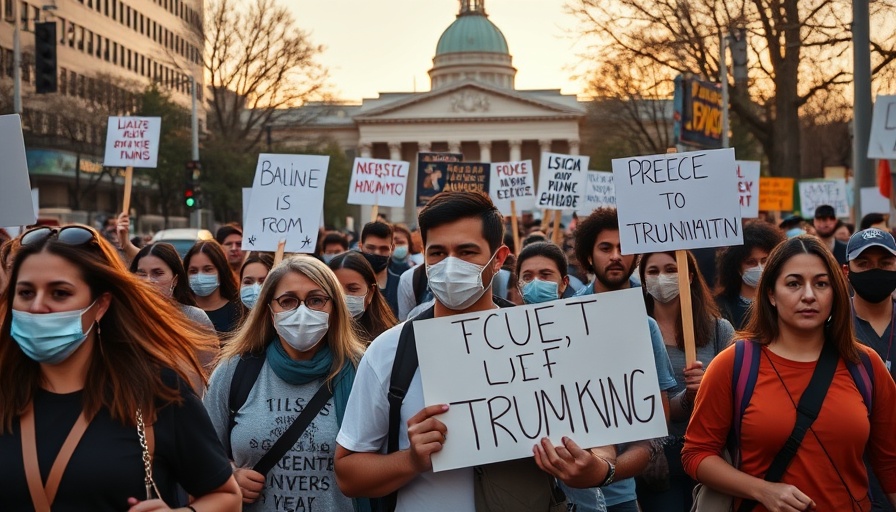
A Growing Wave of Protests Against Immigration Raids
In recent weeks, the United States has witnessed an unprecedented number of protests erupting against immigration enforcement activities. With Los Angeles leading the charge, cities across the nation have joined in solidarity, expressing outrage over a series of raids that have disrupted the lives of countless families. From large gatherings of thousands to on-the-ground grassroots demonstrations, the collective voice of dissent is becoming increasingly hard to ignore.
The Outbreak of Protests Across Major Cities
Atlanta, Austin, and beyond are among the cities where demonstrators have taken to the streets, advocating for the rights of immigrants. In Atlanta, over 1,000 protesters took to Buford Highway, a vibrant hub for Hispanic and Asian American communities. Their gathering was met with force, as police responded with chemical irritants, a move that has ignited further debate on the handling of protests.
Simultaneously, in Austin, a rally at the State Capitol drew several hundred participants. However, tensions escalated when police deployed tear gas to disperse the crowd after curfew, highlighting the fraught relationship between law enforcement and the communities they serve.
Understanding the Roots of Discontent
The protests are driven not just by anger over specific incidents, but by a broader frustration with immigration policies perceived as harsh and unjust. Organizations like the Service Employees International Union and progressive groups have played a pivotal role in mobilizing communities and coordinating protests to advocate for change.
Why This Matters: A Collective Human Story
These protests represent more than just dissent; they symbolize the fears and hopes of millions of individuals whose lives are at stake due to immigration policies. For many in local immigrant communities, these events are a call for justice, a demand that their voices are heard amid a landscape of fear and uncertainty.
Future Implications and the Path Forward
As protests continue to spread, it raises questions about the political climate heading into upcoming elections. The frustrations manifested in these demonstrations could influence voter sentiments, potentially shifting policies towards a more compassionate approach to immigration.
A Counter Perspective: Balancing Security and Compassion
While many advocate for less restrictive immigration policies, it is crucial to recognize the complexities involved. Proponents of stringent immigration enforcement argue that national security and order must also be priorities. Striking a balance between security and compassion will be essential as discussions around immigration evolve.
Discussion and Engagement: What Can You Do?
As these movements evolve, community engagement is essential in shaping future policies. Consider attending local discussions or forums, advocating for fair immigration reforms, and educating yourself and others about the challenges faced by immigrants in your area.
Understanding these dynamics is not just a matter of policy; it is about recognizing the human stories behind the headlines. As citizens, we have a responsibility to ensure that our communities remain inclusive and secure for everyone.
 Add Row
Add Row  Add
Add 




 Add Row
Add Row  Add
Add 

Write A Comment